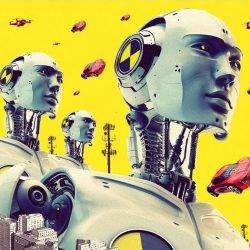December 4, 2018
Core Innovation Hub secures funding to transform the way buildings are designed, built and managed
 An alliance of experts specialising in digital, manufacturing, building performance standards and construction technology has been awarded leadership of a new national Hub to drive innovation and technological advances in the UK construction and infrastructure sectors. Following a nationwide competition, Innovate UK has awarded £72 million to the Transforming Construction Alliance to deliver a national Core Innovation Hub, a key element of the Transforming Construction programme. The alliance brings together the specialist expertise of the MTC (Manufacturing Technology Centre), BRE (Building Research Establishment) and the CDBB (University of Cambridge Centre for Digital Built Britain).
An alliance of experts specialising in digital, manufacturing, building performance standards and construction technology has been awarded leadership of a new national Hub to drive innovation and technological advances in the UK construction and infrastructure sectors. Following a nationwide competition, Innovate UK has awarded £72 million to the Transforming Construction Alliance to deliver a national Core Innovation Hub, a key element of the Transforming Construction programme. The alliance brings together the specialist expertise of the MTC (Manufacturing Technology Centre), BRE (Building Research Establishment) and the CDBB (University of Cambridge Centre for Digital Built Britain).
















 New research suggests as the supposed ‘technologically savvy’ millennials enter the workforce they are more likely than older workers to break the most basic of security rule, reusing passwords across different accounts. This is according to the results of the 10th Annual Market Pulse Survey from SailPoint Technologies Holdings, which finds that despite an increased focus on cybersecurity awareness in the workplace, employees’ poor cybersecurity habits are getting worse, which is compounded by the speed and complexity of the digital transformation.
New research suggests as the supposed ‘technologically savvy’ millennials enter the workforce they are more likely than older workers to break the most basic of security rule, reusing passwords across different accounts. This is according to the results of the 10th Annual Market Pulse Survey from SailPoint Technologies Holdings, which finds that despite an increased focus on cybersecurity awareness in the workplace, employees’ poor cybersecurity habits are getting worse, which is compounded by the speed and complexity of the digital transformation. 


 Over a quarter of businesses plan to hire temporary or contract staff in the next 12 months to help plug skills shortages created by digitalisation as more than half of CEOs are concerned about a lack of digital skills within their organisation. This is according to the Robert Half 2019 Salary Guide which argues that technology is reshaping businesses; with two in five UK organisations (38 percent) considering digitalisation as the main evolving force in the workplace today. This shift has created demand for a new set of skills, such as DevOps, data visualisation, data management and analytics. While softer skills such as resilience, adaptability and critical thinking remain key characteristics in potential employees, a third (31 percent) of employers state that a candidate’s technical skillset is their most important consideration when making a new hire. Around 1.6 million1 (28 percent) UK businesses plan to hire temporary or contract staff in the next twelve months, to combat the lack available talent required, which is creating a critical skills gaps in the workplace.
Over a quarter of businesses plan to hire temporary or contract staff in the next 12 months to help plug skills shortages created by digitalisation as more than half of CEOs are concerned about a lack of digital skills within their organisation. This is according to the Robert Half 2019 Salary Guide which argues that technology is reshaping businesses; with two in five UK organisations (38 percent) considering digitalisation as the main evolving force in the workplace today. This shift has created demand for a new set of skills, such as DevOps, data visualisation, data management and analytics. While softer skills such as resilience, adaptability and critical thinking remain key characteristics in potential employees, a third (31 percent) of employers state that a candidate’s technical skillset is their most important consideration when making a new hire. Around 1.6 million1 (28 percent) UK businesses plan to hire temporary or contract staff in the next twelve months, to combat the lack available talent required, which is creating a critical skills gaps in the workplace.











December 5, 2018
The war for talent is over and we need to face up to new opportunities and challenges
by David Corcoran • Comment, Workplace
More →